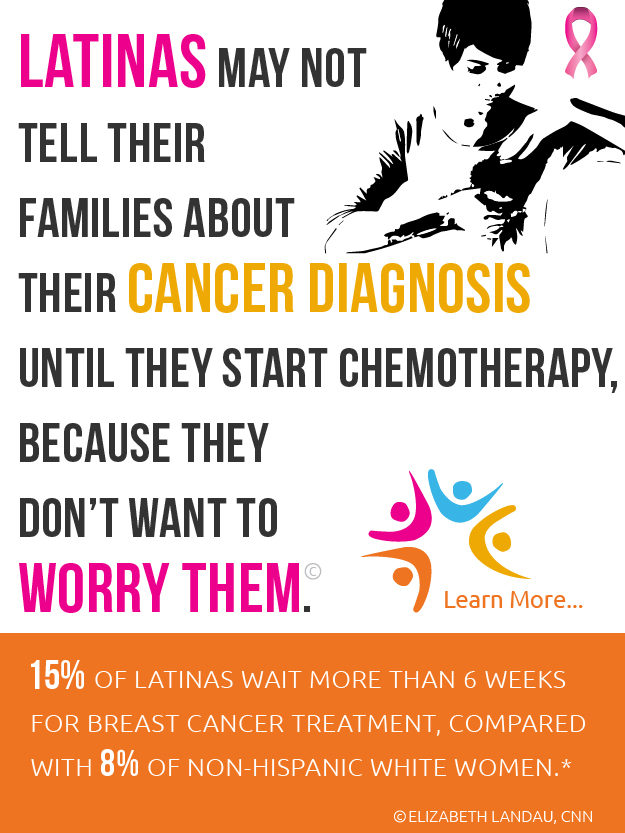According to a report from the National Latino Cancer Research Network, cancer numbers among Hispanics are expected to climb by 142 percent over the next 20 years. Cancer already disproportionately affects Hispanics; Hispanics under the age of 50 with cancer is at 26 percent–twice the national average.
The reason for the extreme growth in cancer percentages is being investigated, but experts feel the rate at which the Hispanic population is growing (expected to be 438 million by the year 2050) coupled with low rates at which Hispanics seek preventative cancer is part of the issue.
According to materials from Fred Hutchinson Cancer Research Center, Hispanic tend not to get screened for common cancers, such as breast and colorectal cancers, as regularly as non-Hispanic whites. This means when Hispanics are diagnosed with cancer, it is usually in more advanced stages of the disease.
The lack of preventative care negates certain advantages Hispanics have when it comes to cancer, like the genetic variant recently found that lowers breast cancer risk in Hispanic women. Researchers will be evaluating how certain factors, like a lack of access to health insurance, will impact the future Hispanic cancer rate.
The American Cancer Society indicates there is evidence that descendants of Hispanic immigrants have cancer rates that approach those of non-Hispanic whites due to acculturation.
SEE ALSO:Research finds important breast cancer link in Hispanic women
“The effects of acculturation are complex and can be associated with both positive and negative influences on health,” stated the organization. “Among Hispanic immigrants to the US, for example, assimilation may result in improved access to health care and preventive services, as well as the adoption of unhealthy behaviors (e.g., smoking and excessive alcohol consumption) and decreases in dietary quality and physical activity. One study found that overall cancer death rates were 22 percent higher among US-born than foreign-born Hispanics.”
The 142 percent cancer rate increase will be further explained in an upcoming conference this weekend in San Antonio.












Post your Comment
Please login or sign up to comment
Comments